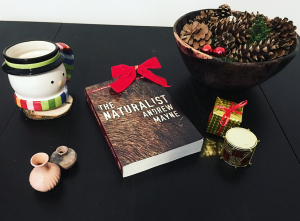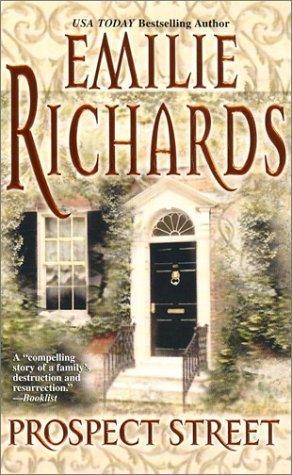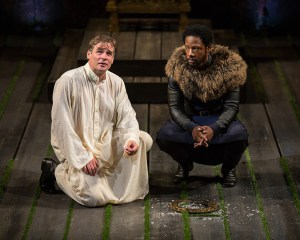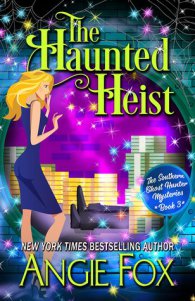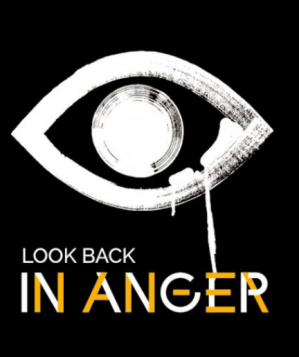Like all writers (and avid readers), I read. A lot.
Whether I’m lugging around a multi-pound hardcover, or have my kindle tucked into my bag, I always have a book within arm’s length (no joke). I’m usually juggling two to four at any given time, and have a release schedule for up-and-coming titles I can’t wait to get my hands on. Heck, my gamer friends can even vouch that I read between raids or on downtime. I’m always reading, in some capacity.
My love of reading is similar to my love of gaming, in that sense. It’s something that inspires a great deal of my creative life. I go to both for inspiration. Whether I’m looking for a good plot, or wanting to be absorbed by a carefully constructed atmosphere—both gaming and reading are near and dear to me (something I’m sure you’ve picked up on by now).
As the air gets colder, and my craving for spicy curry and hot drinks grows more intense, I find myself sitting back with a good book or game, under a pile of warm blankets— maybe a cinnamon candle, or two. Chilly nights spent tucked into a spooky classic, whether I’m reading The Haunting of Hill House or working on my thousandth play through of Until Dawn, there’s a definitive theme (or set of themes) that I resort back to during the fall.
Horror, fantasy, surrealism, and fabulism are all genres that are synonymous with this time of the year to me. They make up some of my favorite games and books—and when I sat back down to revisit my “personal classics”, I couldn’t help but draw mental connections.
And I thus curated this list. Take the title as literally as you can, these are book recommendations based off of a handful of my favorite games. All of the books on here have some literary value, and I must say, I haven’t simply selected them for having a similar plot line to the corresponding game. It’s more than that. Each book draws upon a level of atmospheric value that the game achieves, but from a different approach. While these games can more heavily rely on visuals, dialogue, and sound to relay atmosphere, a different level of depth needs to be addressed for a novel to have the same impact (note, different—I am a strong believer that each has their right as an art form and thus one’s ability should not be held over the other).
Note: Most of these books probably aren’t what you’re expecting. I’ve taken a bit more of a creative approach in these choices—from lesser known, highly literary vignettes, to more mainstreamed fiction. I chose these because because they emitted something that the game did, and I’m certain that an eager, willing, and open audience would appreciate the connections.
♣
If you liked The Witcher…The Witcher series (especially it’s finale) is a family favorite. Especially the last of the trilogy, this is a series CD Projekt Red could be proud of, and has secured a permanent home in my favorite games of all time. It’s attention to detail in storytelling is beautifully done, and as the writer of fable and lore, I adore it.

The Name Of The Wind was one my dad pushed me to read for a long time, but I only recently finished it…and, wow.
This one is dense, but for a lover of old, rich fantasy, it’s pretty damn good. Like, maybe one of the best modern fantasy novels sort of good. It weaves a level of depth that The Witcher does, and that’s my fundamental reasoning for juxtaposing the two—but The Name of the Wind‘s depth is far more specific and trained. Sitting back and attempting to summarize it is challenging, and I plan on spending more time with it (as Rothfuss and I have drawn similar inspirations from academia, and met our first books seeking similar paths). What I can say, though, is that it focuses on the names that the protagonist has been called and given, and those names are how the story is told.

I can hear some groaning in the background. Shakespeare, really?
I love Macbeth. I have a sickly obsession with Macbeth, and have since I first read it in the 7th grade. More specifically, I’ve had a constantly intensifying admiration for Lady Macbeth (I promise I’m not that crazy). The Lodge of Sorceresses is an immovable force in the game(s), and if you were enamored with them, just reading Lady M’s sultry dialogue will strike you with her exasperated genius. To me, she is the heart of the play, and mad in ways that even Keira Metz and Philippa Eilhart cannot compare.

The Witcher book series is somewhat of a Polish national treasure, having won the Janusz A. Zajdel Award. I’m more disappointed that I didn’t pick it up while plaything through the games rather than after, as the two create an even richer experience of storytelling when woven together.
There are five books total in the saga, at least one standalone that I know of, and various stories about the meta universe. If you enjoyed the story portrayed in the games, just consider that a very small glimpse into the beautiful detail Sapkowski poured into this world. The game does the books justice, but there’s only so much detail that they can incorporate. Sapkowski worked with CD throughout development (consultation over the development of the maps, etc.) and allows for each to complement each other.
♦
If you liked Everybody’s Gone To The Rapture or The Vanishing of Ethan Carter…Both of these games, especially the former, play critical roles in why I love to write about video games in a more academic nature.

Neil Gaiman making his way into another one of my lists? Shocker.
Gaiman is a modern folklorist. I’ll use the word “magical” a lot in this post, but it’s best used to describe Gaiman. Like I’ve said many times before, his work reads like it’s meant to be read aloud. The prose is that good, and I expect it to be.
Much like The Vanishing of Ethan Carter it starts in a very real setting, and then it expands into something else. Though Ethan Carter is more cerebral and up to the interpretation and inventiveness of the player, reading through The Ocean At The End Of The Lane is like stepping through a door into another world—but that door is a closet in your home. It’s important to observe how the story is being told, and who is telling it.

I have a lot of respect for Bernheimer’s craft, let me start with that. I was first introduced to her work in a college seminar taught by visiting author Lily Hoang. I read the novel in one sitting, and it almost completely changed how I looked at writing academically from that day onward—I reworked my entire thesis, after. Which did me some good, as I walked away successful after defending it for Honors.
Both Ethan Carter and Everybody’s Gone To The Rapture emulate a childlike sense of exploration and creativity through their use of first person perspectives, The Complete Tales Of Ketzia Gold (and it’s corresponding sequels about Ketzia’s sisters) triggers that same sense of curiosity by visiting fairytales ethnic and known, using a poetic language that easily made me feel like I was tiptoeing down a flight of creaky wooden stairs in the middle of the night—careful not to disrupt the air, but fast paced and curious to get to my destination.
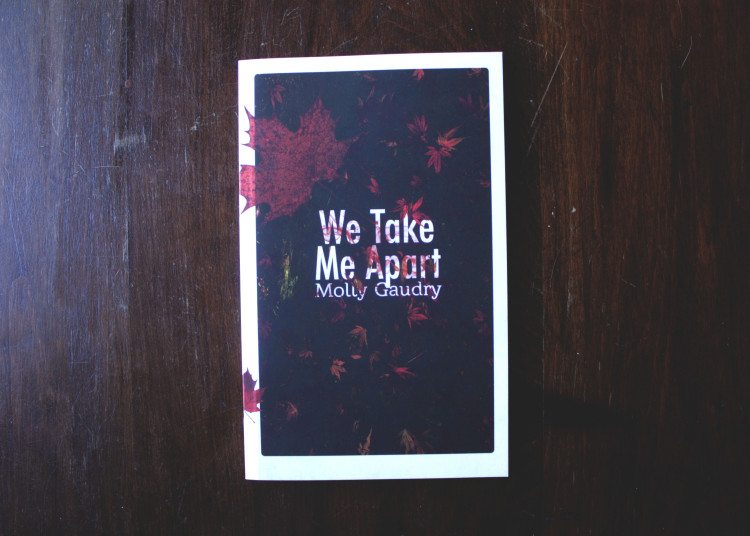
Gaudry’s book was introduced to me in the same seminar where I was introduced to Bernheimer’s work, and I’ve included it here for similar reasons.
This one is definitely the most difficult book on this list to explain, it’s just so…different. An extremely modern interpretation of classic fairytale, Gaudry weaves a truly ethereal experience. From the literal prose, to the formatting, much like a game, the book is physically laid out in such a specific way to draw the reader forward. It’s silent, but screams at you. Gaudry has a perfect grasp on her art, and utilizes it to the best of her ability.
♠
If you liked Until Dawn…Until Dawn is an underrated favorite of mine. Point blank.

I have chosen to incorporate this book into the list in honor of one specific sequence early on in the novel—one that was so expertly constructed, that I sat in a dead sweat in the middle of an airport flying home for Christmas a few years back. Like his father, Hill can write, and he can write well.
This is a good book, and it’s scary as all hell. But it’s not only the story that makes it scary, it’s the why it was written. Towards the beginning of the novel, there is a sequence where the main character has found herself in the home of the antagonist. How Hill approaches this set of chapters is absolutely brilliant, and left me shellshocked and winded. Much like Until Dawn‘s punishing mechanic that doesn’t allow you to go back after decisions have been made, Hill’s work leaves you feeling just as helpless, as if you have no control of your surroundings—even if you’re just holding a book.

Broken Monsters is a modern, literary experience in horror. Much like I found Until Dawn to be an equally unique experience in gaming, there’s not much else that can step in their way. I’m always finding myself shocked that neither gets enough credit for what they achieve, and I incorporate them both into fictional lesson plans if I ever decided to get off my ass and get a Ph.D.
It’s grotesque, and as Stephen King said, hypnotic—Beuke writes horrifically, but in the best way possible. The descriptions of her crime scenes are as shocking as they are intoxicating. But where this heightened sense of horror and chaos peaks, it’s met with a creamy bit of humor. It’s truly terrifying, but as the suspense builds, you’ll find that you’re trapped in her prose. She is, without a doubt, a modern master of the genre with this book alone.

John Dies at the End is the closest in literary content to that of the Until Dawn—pulpy comedic horror, but has value in it’s own right. Much like Until Dawn was a pleasure to play due to it’s total breakaway from the gaming norm, Wong’s novel is just fun. Quirky, comedic characters that drive the parody forward, there are breakaways in the story that keep you moving. It has scattered moments where neither the humor or the horror are present, and those combined create a truly good reading experience.
But not only is it fun—it’s actually pretty smart, if you know where to look. Masked in parody of 1970’s horror flicks, it’s almost Lovecraftian. Almost. Though any fan of the horror game genre would find a place in this book.
♥
If you liked Life Is Strange…Life Is Strange enamored me in the same light that Until Dawn enamored me: for simply being a unique gaming experience. There’s a lot of meat to the story and gameplay, and leaves a very specific atmospheric aura I’d love to write more about.
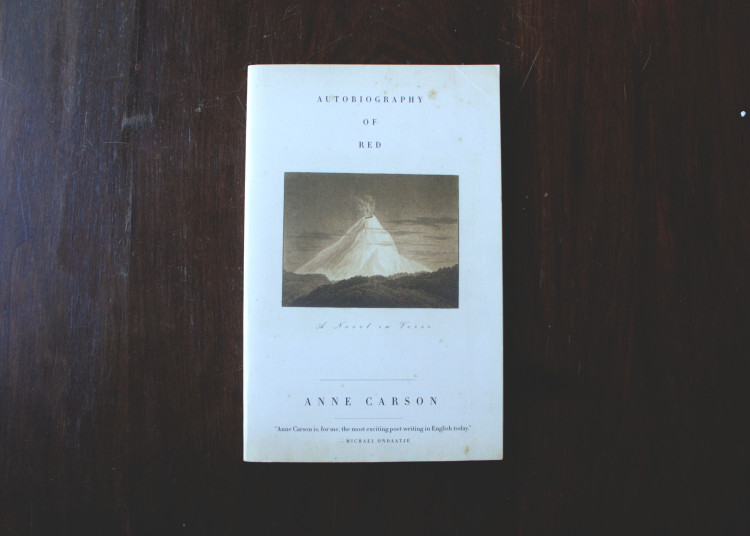
Similar to Bernheimer and Gaudry, Carson’s Autobiography of Red is one of the higher literary pieces included on this list. It’s challenging, and if often met with a love-or-hate reaction from the reader. I, of course, fall on the love side.
Based (loosely) on the the myth of Geryon and the Tenth Labor of Herakles, and Stesichorus’s poem Geryoneis, The Autobiography of Red is alluring. Aside from minor fabulist motifs, the plot isn’t all that similar to Life Is Strange, but the prose ignites a mixture of peace and chaos that is similar to watching a storm roll in from the shore. It’s poetry for people that don’t necessarily like poetry—and for people that do, it’s a masterpiece.
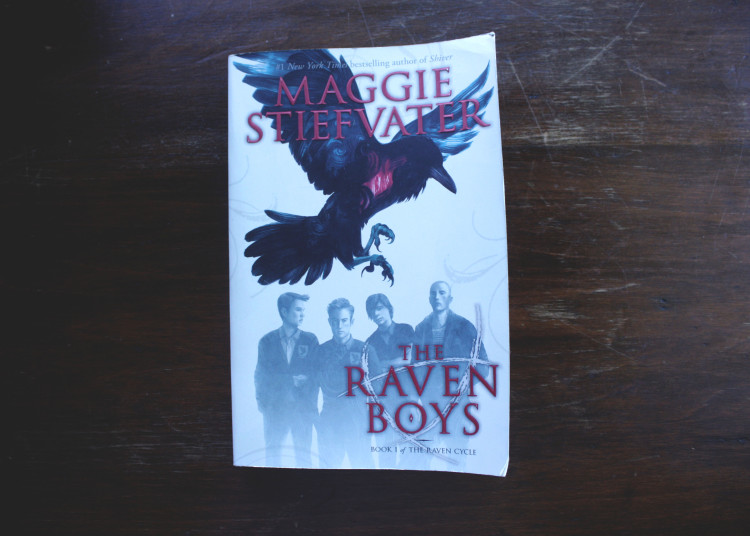
My relationship with Maggie Stiefvater goes back a long ways. I was enamored with her first book Lament, and later Ballad, long before she started climbing the latter of YA fame after her success with Shiver. I added her as a friend on Facebook before it was turned into a fan page, though I can’t remember if she actually accepted or if I tried to say anything. But I can say that I was obsessed. Her books fell into a part of my adolescent life where stories about faeries and new-student female protagonists were just what I needed. She was one of the authors, alongside Kristin Cashore, that played a key role in the very year I decided to write.
The Raven Boys was so different than anything she had written to date, and I fell in love with her writing all over again. Like Life Is Strange, it’s content portrays the demographic that it aims: a ragtag group of teenagers in a rustic, smaller town. It’s dark, much darker than YA usually goes.
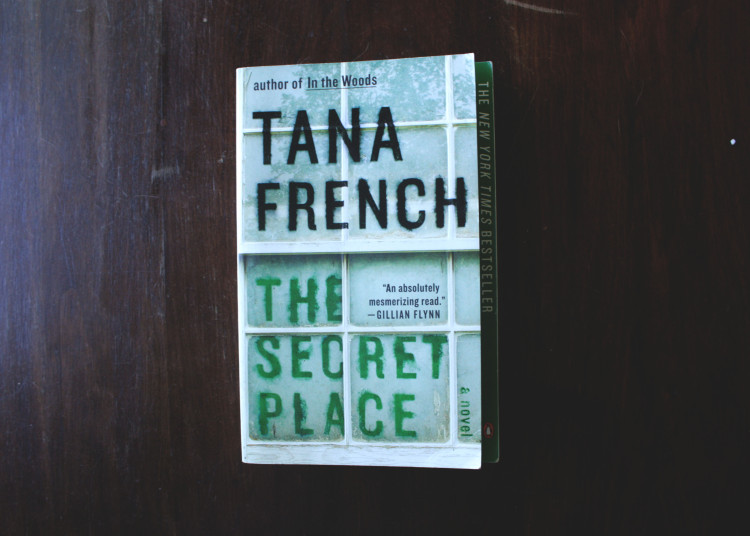
This recommendation takes a different take on the thematics of it’s game counterpart: mystery, magic, and adolescence.
Rather than directly following a young narrator(s), like Life Is Strange or The Raven Boys, The Secret Place follows a detective on the case. The book is shown from the perspective of Stephen Moran, mostly, while he and his newfound partner take on a murder case at a pristine all-girls school in Dublin. In the light of a mystery-crime, I’ll stop there—but I can tell you that it’s good. French has such a stellar way with words, which I’m especially fond to see in an otherwise commercial genre. The book tackles adolescence in glimpses, and while magic in Life Is Strange is represented more literally, French uses it in such a way that makes you question reality.
♣
I suppose I can say “and vise versa” now, too (well, maybe not Until Dawn…not everyone needs that blood pressure spike).
It’s always really challenging for me to give or write book and game recommendations, because I’m extremely apprehensive to give away anything about the story or plot (which I actively avoided here). In the case of many of these books, I didn’t want to give away the writing. You expect writers like Gaiman to deliver something magical, but lesser known authors like Bernheimer and Gaudry may come as a surprise. Reading their work will enamor and shock, much like playing some of these games may have done if you went into them blind.
Advertisements Share this: